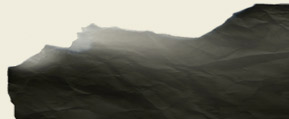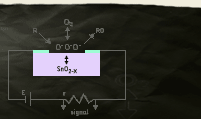From : <ecole@magasin-cnac.org>
Sent : Thursday, April 6, 2006 5:17 PM
To : Nils Norman
Subject : Request for a meeting
Dear Nils,
We open our project here in Grenoble June 3rd and we would very much appreciate to meet you before the opening.I understand that it seems difficult but if we could find a date in April or May, that would be wonderful.
Soon, we will open a plateform concerning the question of participation on our website. Would you accept to reply to our inquiry by talking about your work and by sharing your ideas about participative practices in art ? That could be a first step for a meeting between us...
For our website project and to begin :
How would you describe your experience with participation which implies an exchange between art, architecture and vernacular practices ?
Do you consider participation as a form of democratization of art ?
Maybe I can try to do better...
Best,
Lore
From : Nils Norman
Sent : Tuesday, May 2, 2006 11:53 PM
To : <ecole@magasin-cnac.org>
Subject : Re: Request for a meeting
Hi Lore,
do you think you can expand on these questions a bit? I'm a bit unsure about what you want...
sorry to be so dumb....
N
From : <ecole@magasin-cnac.org>
Sent : Tuesday, May 9, 2006 6:17 PM
To : Nils Norman
Subject : I hope not being too confusing
Dear nils,
At a basic level, I understand participation as a collaborative experience of sharing the commun, and then, as a way to reflect about the meaning of the common and about the place it occupies in our society. Since the middle of the 60's, participatorary practices are central in the debates on architecture. What does the participation of the inhabitants generate in the relation to elaboration of urban planning and in the relation to appropriation of one's own living environment?
I think, participation could be viewed as an emancipatory practice, that privileges individual sensibility and reflexion and stimulates others to act.
However, in the age of late capitalism, this claim to participation combines itself with a neoliberal grammar of "inclusion", "activation","empowerment" and ultimatly with the duty to be creative. Participation might then become a tool of control.
I recognize this paradox inside the concept of participation.
By my questions to you, I would like to ask you how you understand participatory practices. Do you consider them as a form of democratization of art ? How do you consider the collaboration in your work, notably in your chicago project ? What place does it occupy in it?
Do you see any difference between collaboration and participation?
I really hope my explication is not too confusing.
Your sincerly,
Lore
From : Nils Norman
Sent : Wednesday, May 10, 2006 7:06 PM
To : <ecole@magasin-cnac.org>
Subject : Re: I hope not being too confusing
Dear Lore,
I see collaboration primarily a political activity, a way of investigating new relationships, opening up a more self reflexive and critical method of art making. I find participatory projects problematic in that they can be quite exploitative and in some instances they unwittingly reproduce miserable neoliberalisms. But saying that most projects have to be dealt with on a project by project basis as they are all very different, so its quite hard to make generalisations.
N
From : Nils Norman
Sent : Friday, June 23, 2006 7:23 PM
To : <ecole@magasin-cnac.org>
Subject : Re: Request for a contribution to our e-taz
Hi Lore,
I have put the answers below after your questions, hope its all going well,
Best,
Nils
>Dear Nils,
>How are you? I’m writing to you as I would most
>appreciate it if you would agree to continue the
>interview we began before you came to Grenoble.
>
>During our seminar we didn't find the time to speak
>about Geocruiser's project, which I was nonetheless
>very interested in. So I would like now to take the
>opportunity, if you have the time to reply, to ask
>you a few questions about this work
>
>How did you conceive it?
The Geocruiser was developed as a public art commission with the Institute of Visual Culture Cambridge. I had originally made 4 theoretical proposals in model form for hybrid mobile library vehicles combining a library with a composting and a water filtration unit and one with a greenhouse. The Institute were able to raise the cash from the Arts Council to produce it and we made it a year later.
>How did you decide on the travel itinerary of Geocruiser?
It was quite organic and the locations were a mixture of places I had already been invited to exhibit and word of mouth.
>Is Geocruiser related to a specific context and/or
>a
specific audience?
No it was designed to address a very broad audience, from school children to biologists and gardeners to art people.
>And on a more general level, how do you consider
>the
use of documentation in your artistic practice?
I very rarely use it. I am using it more on my pedagogic website but thats a more didactic location.
>Best,
>
>lore
|




